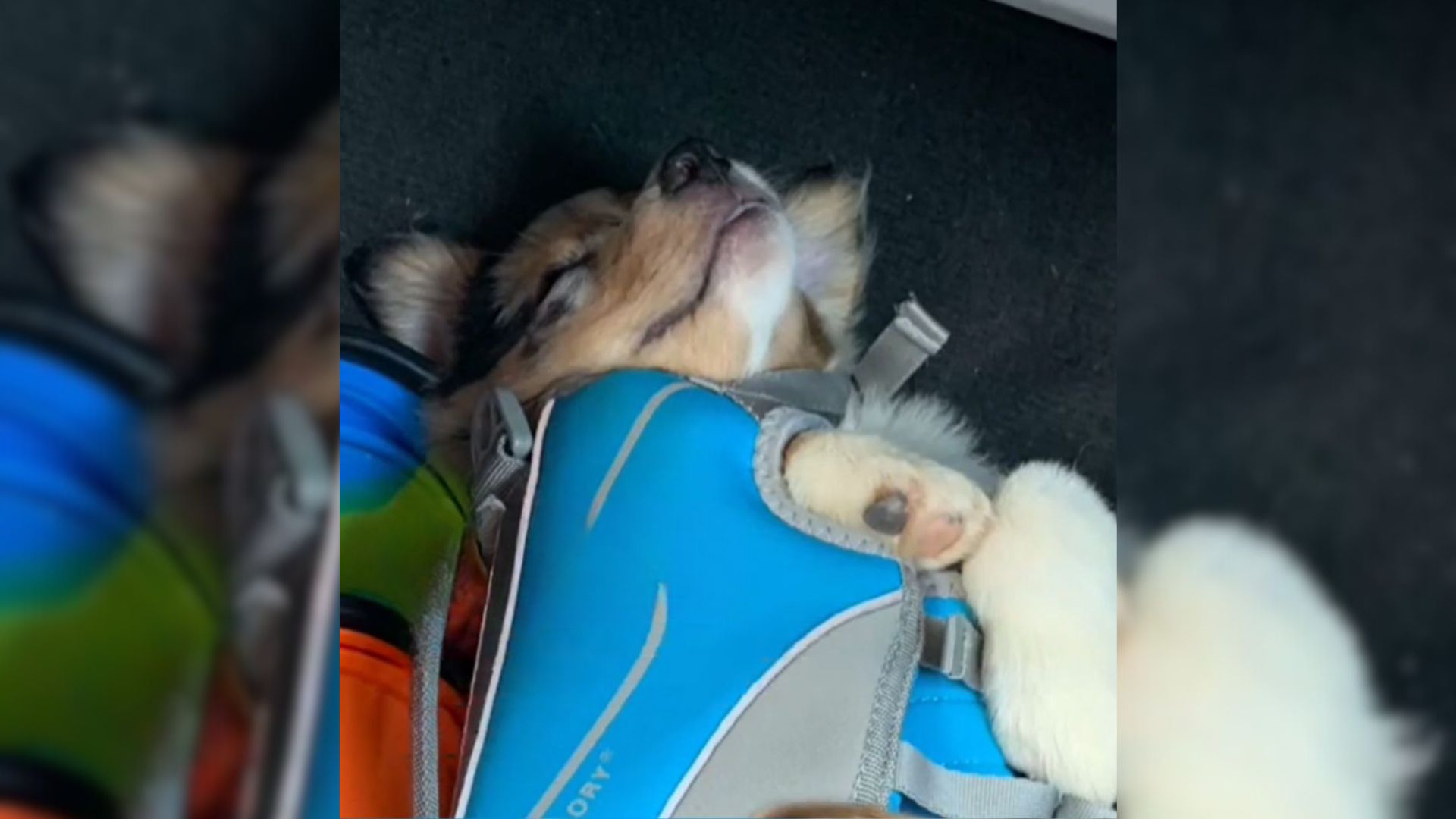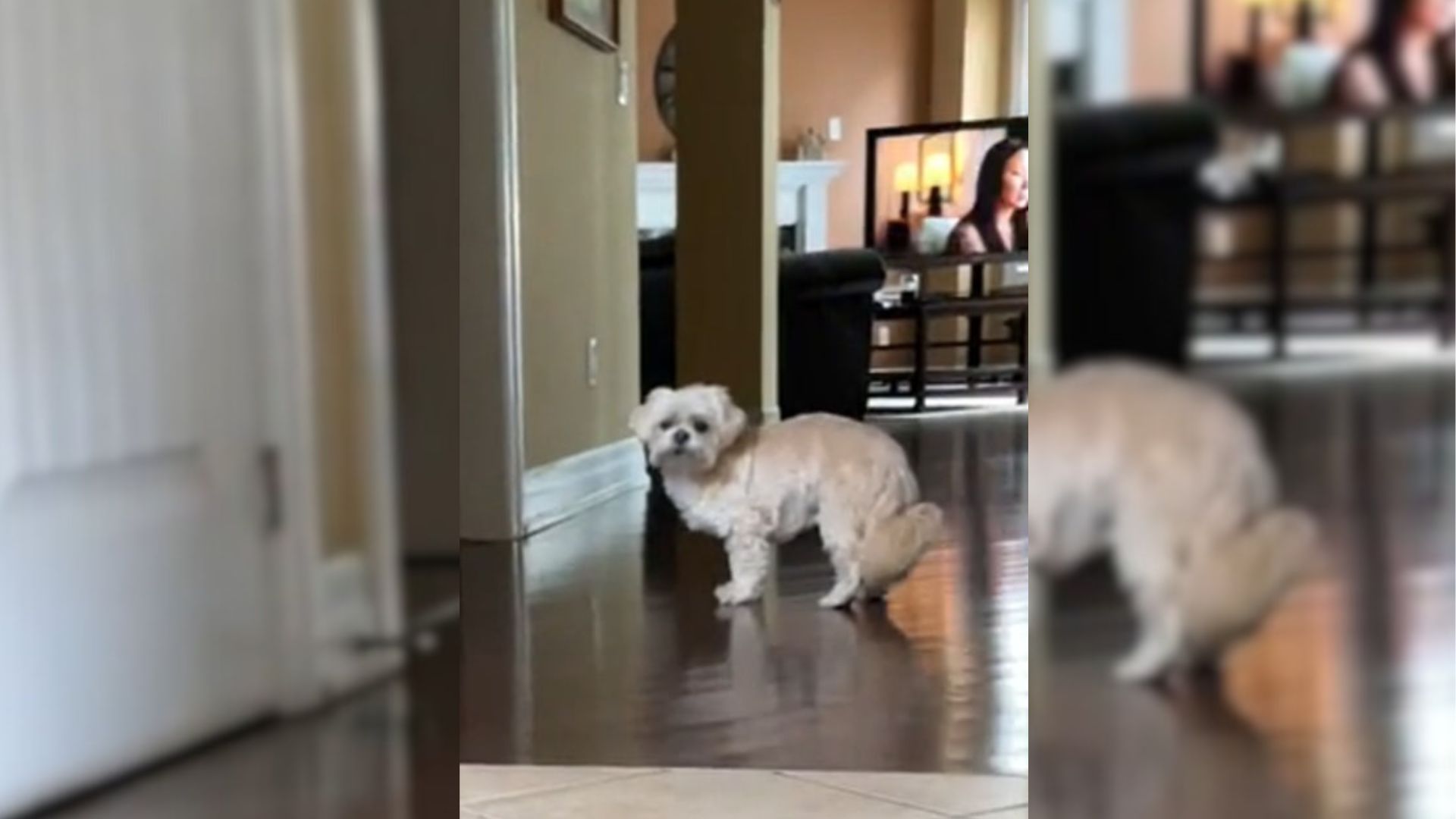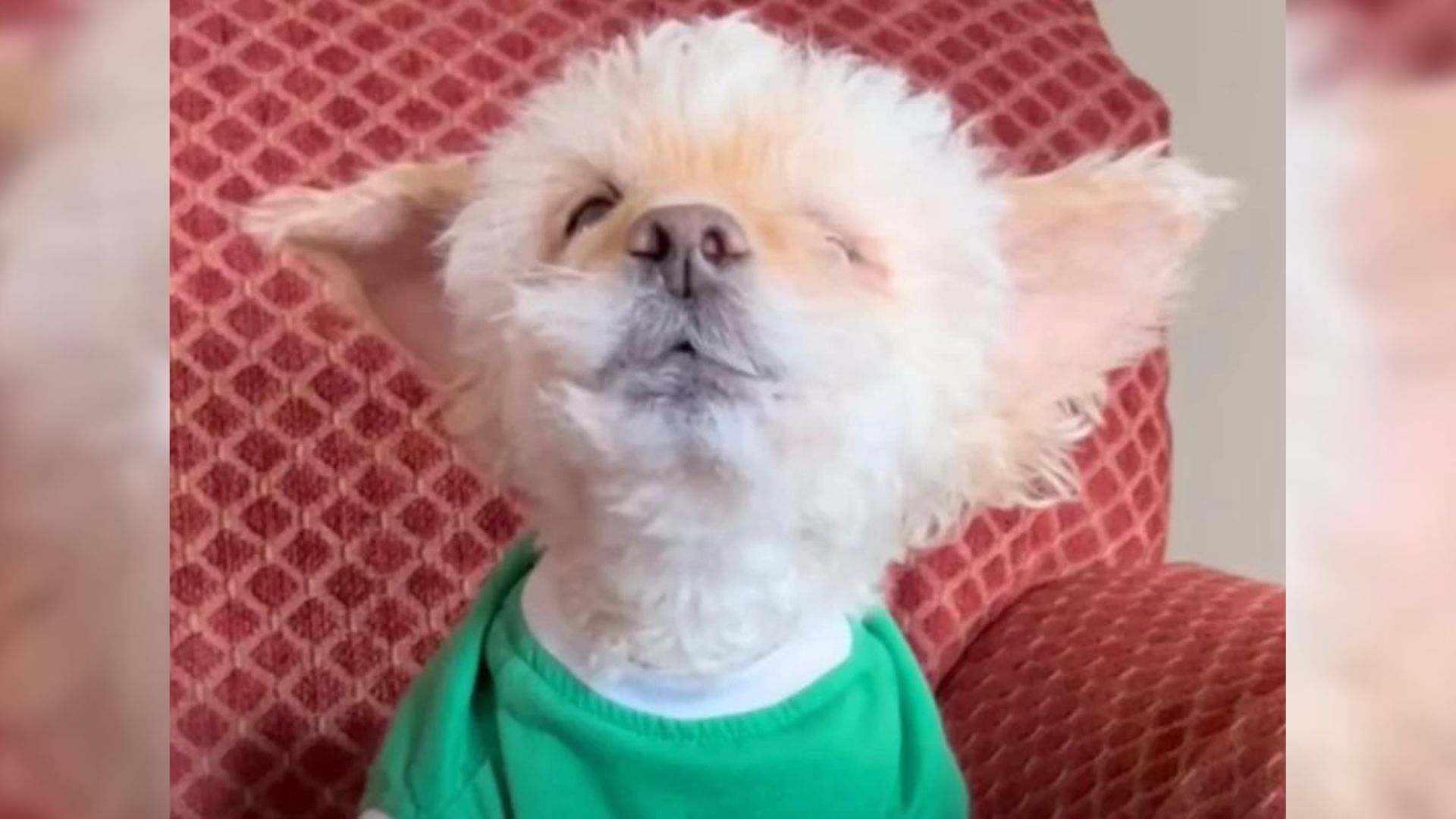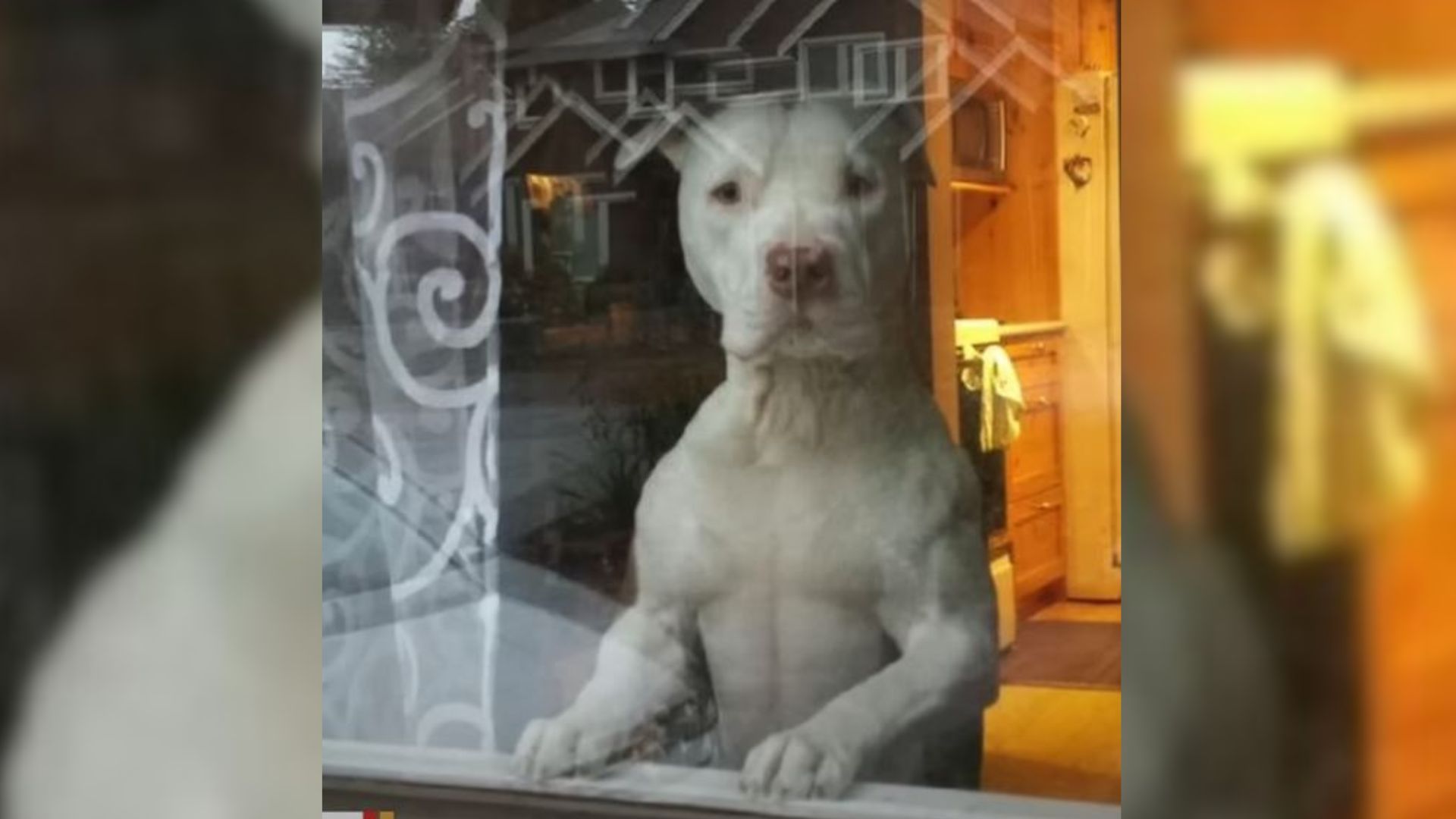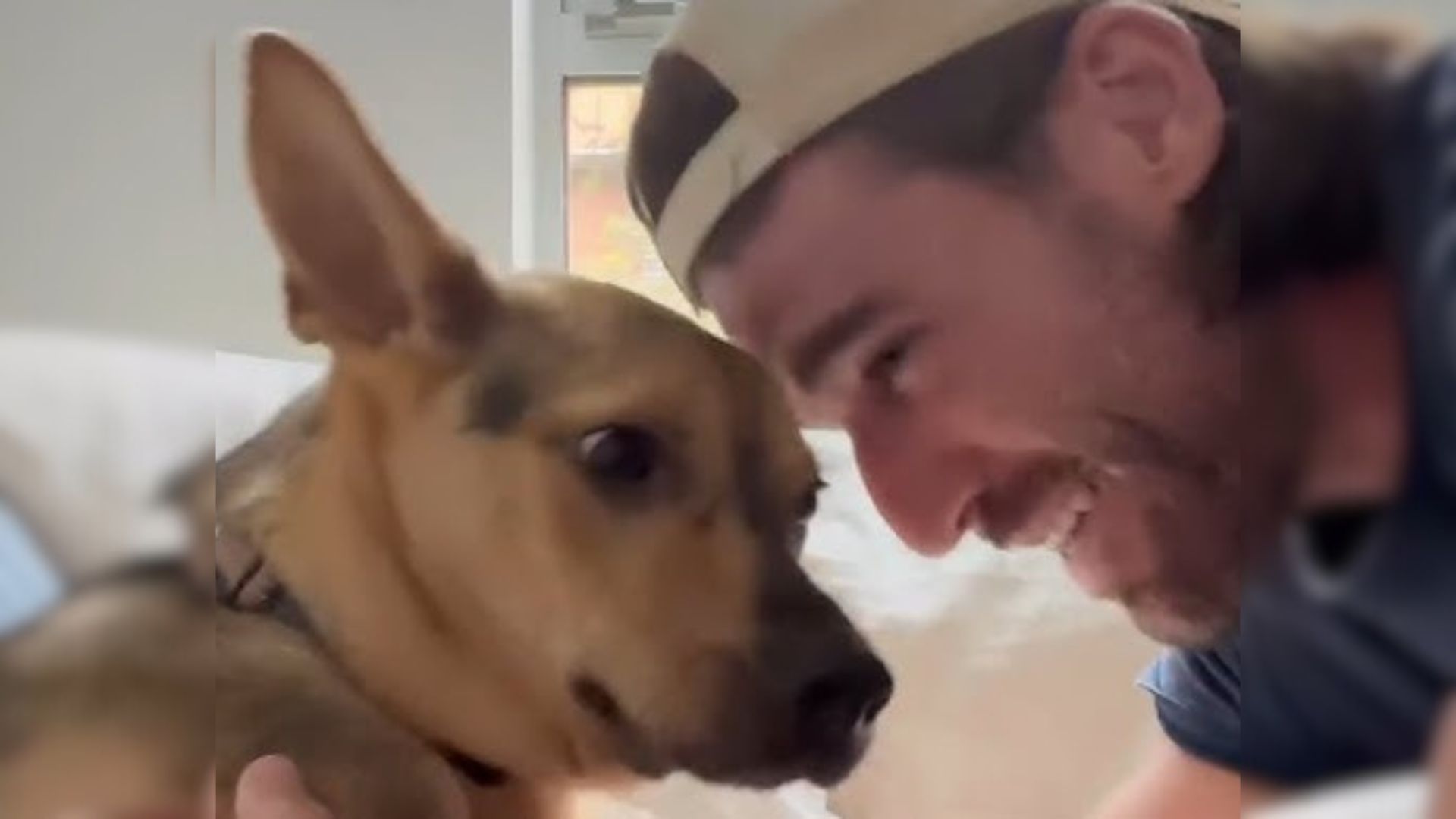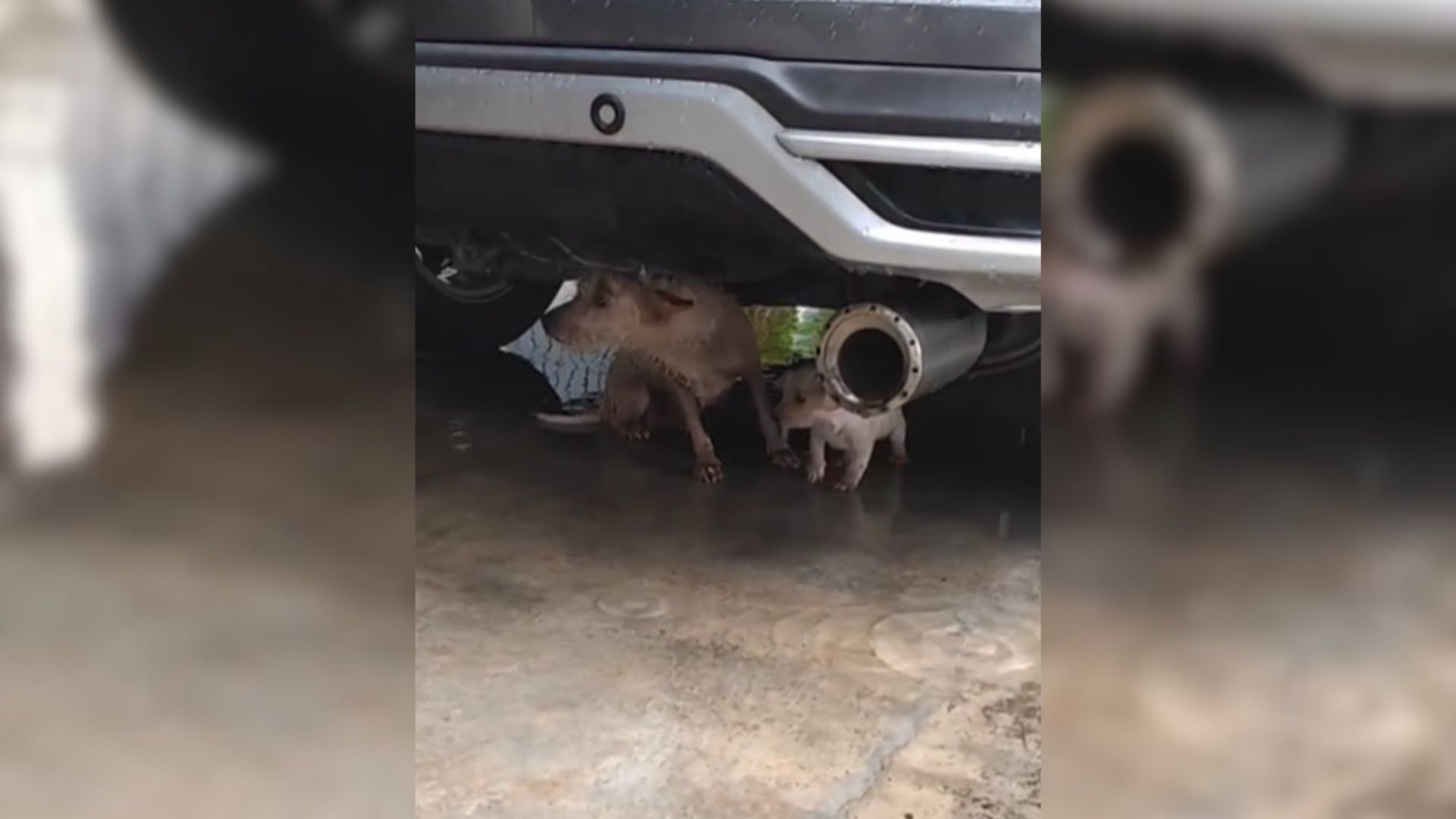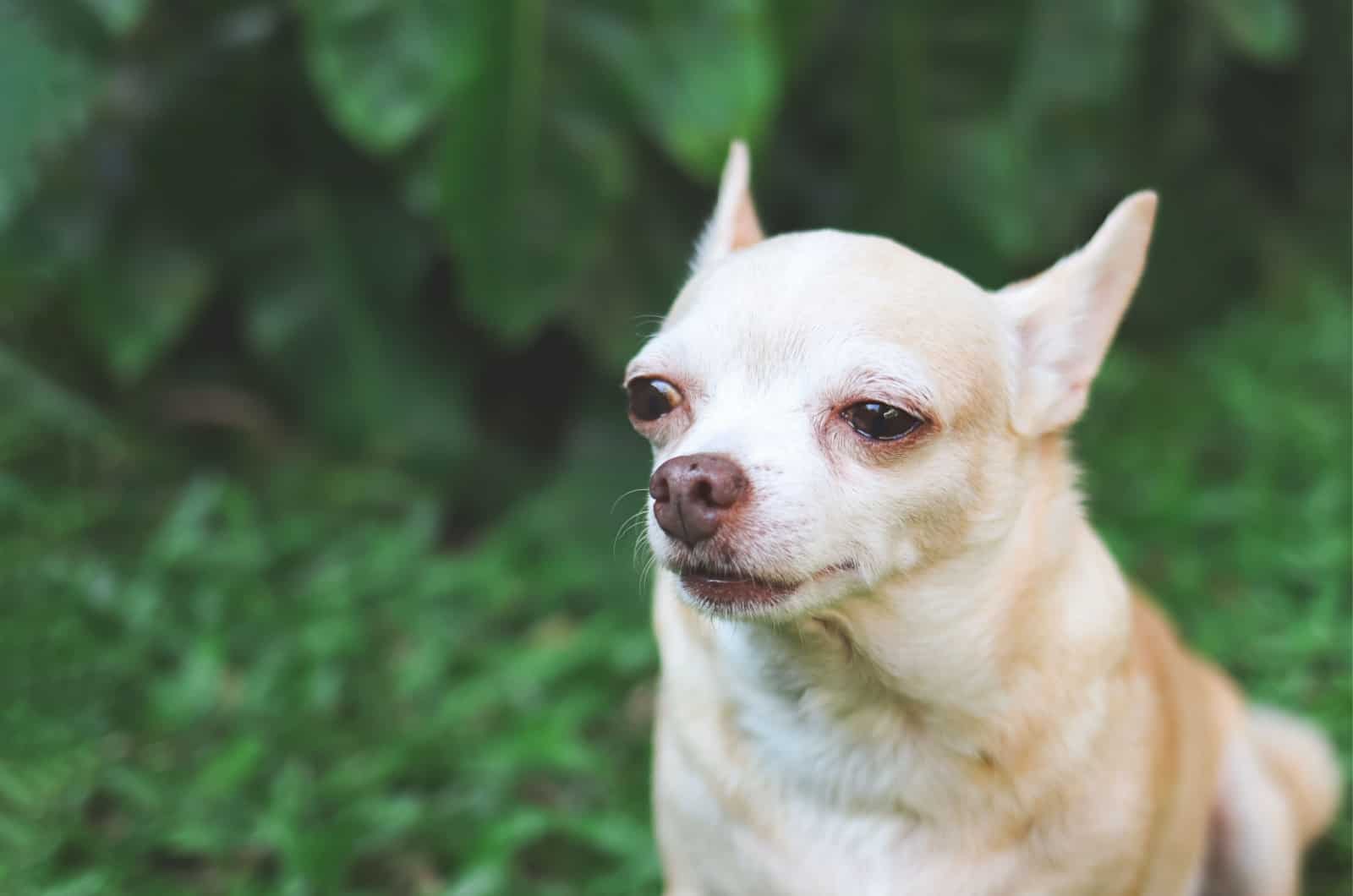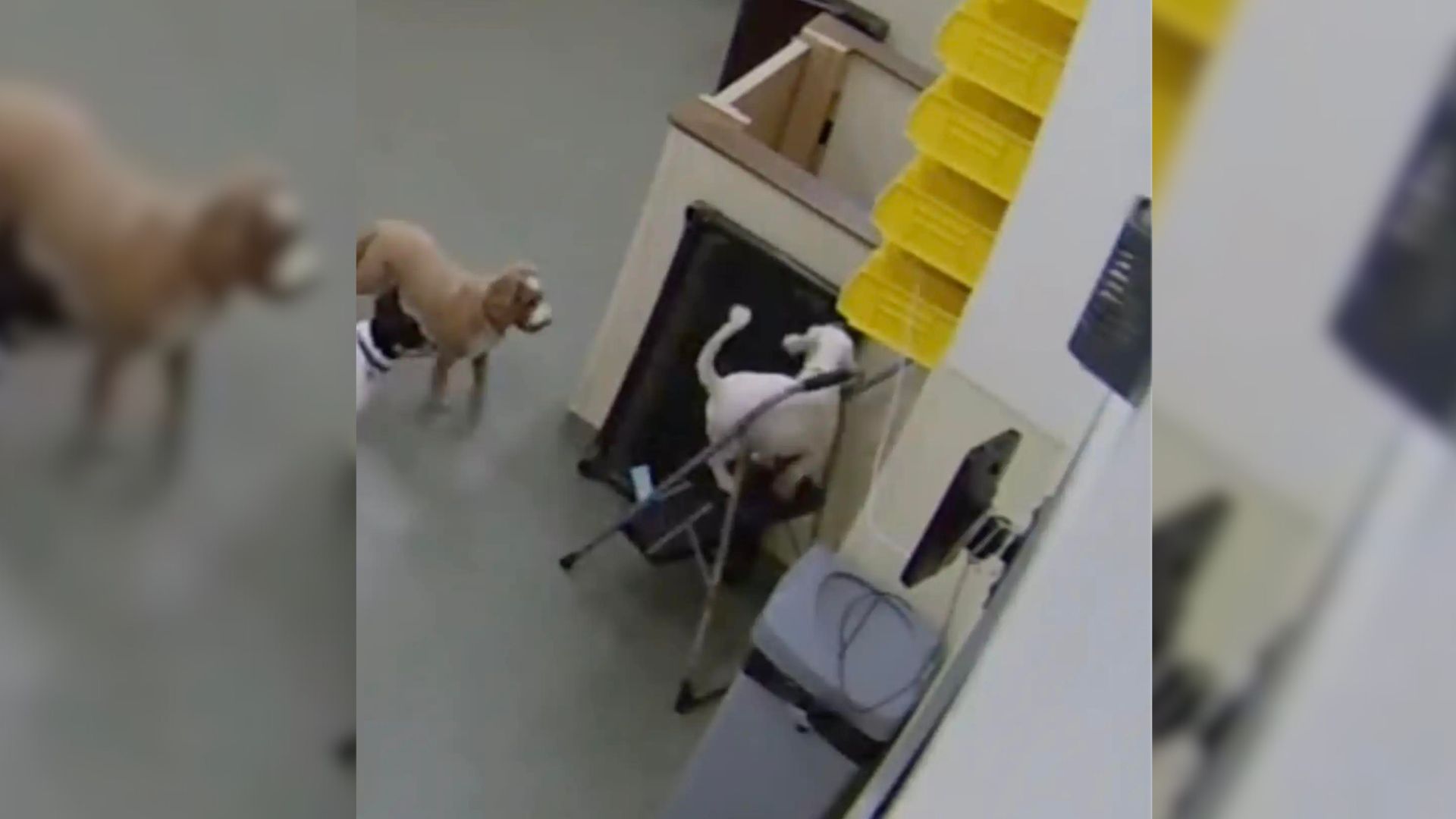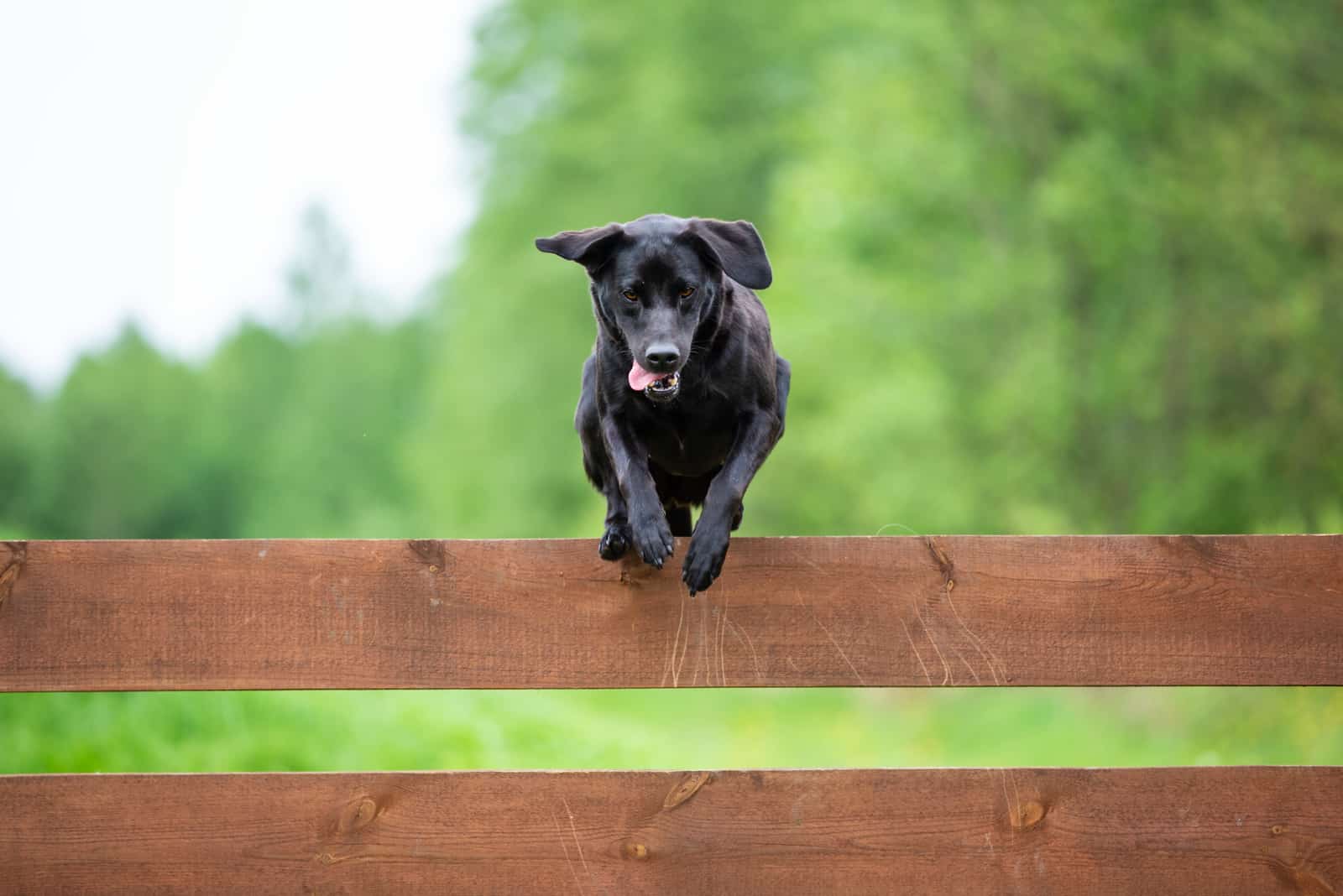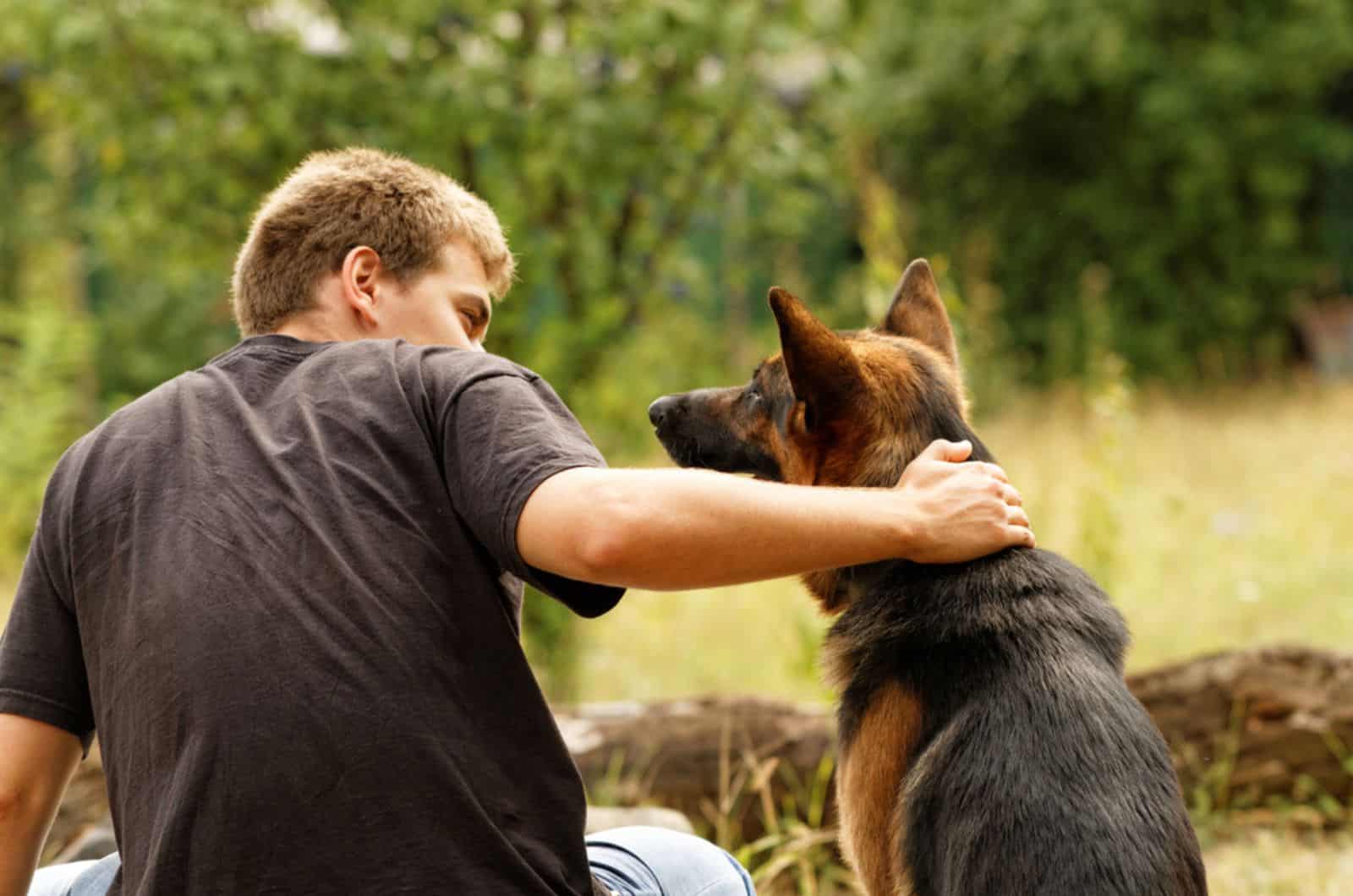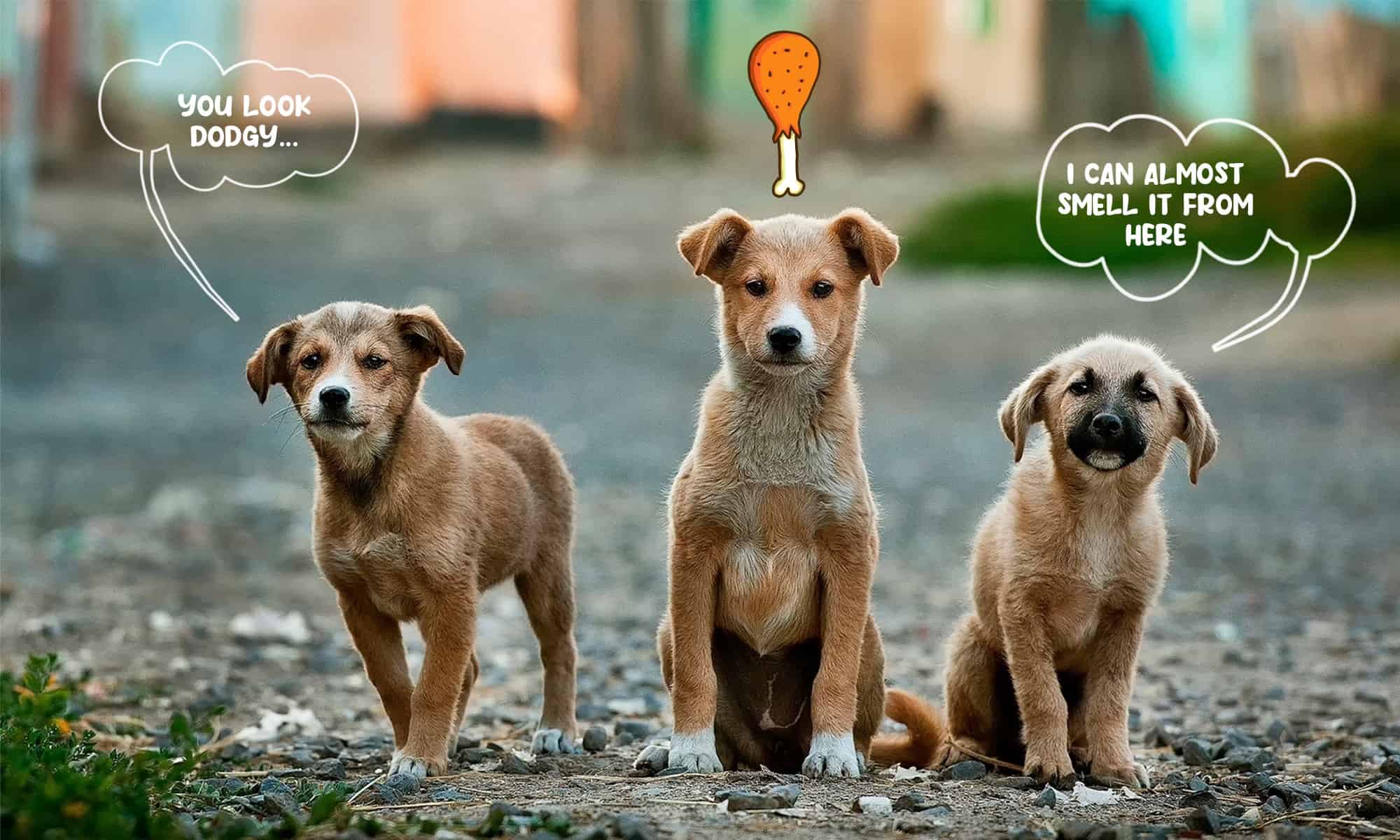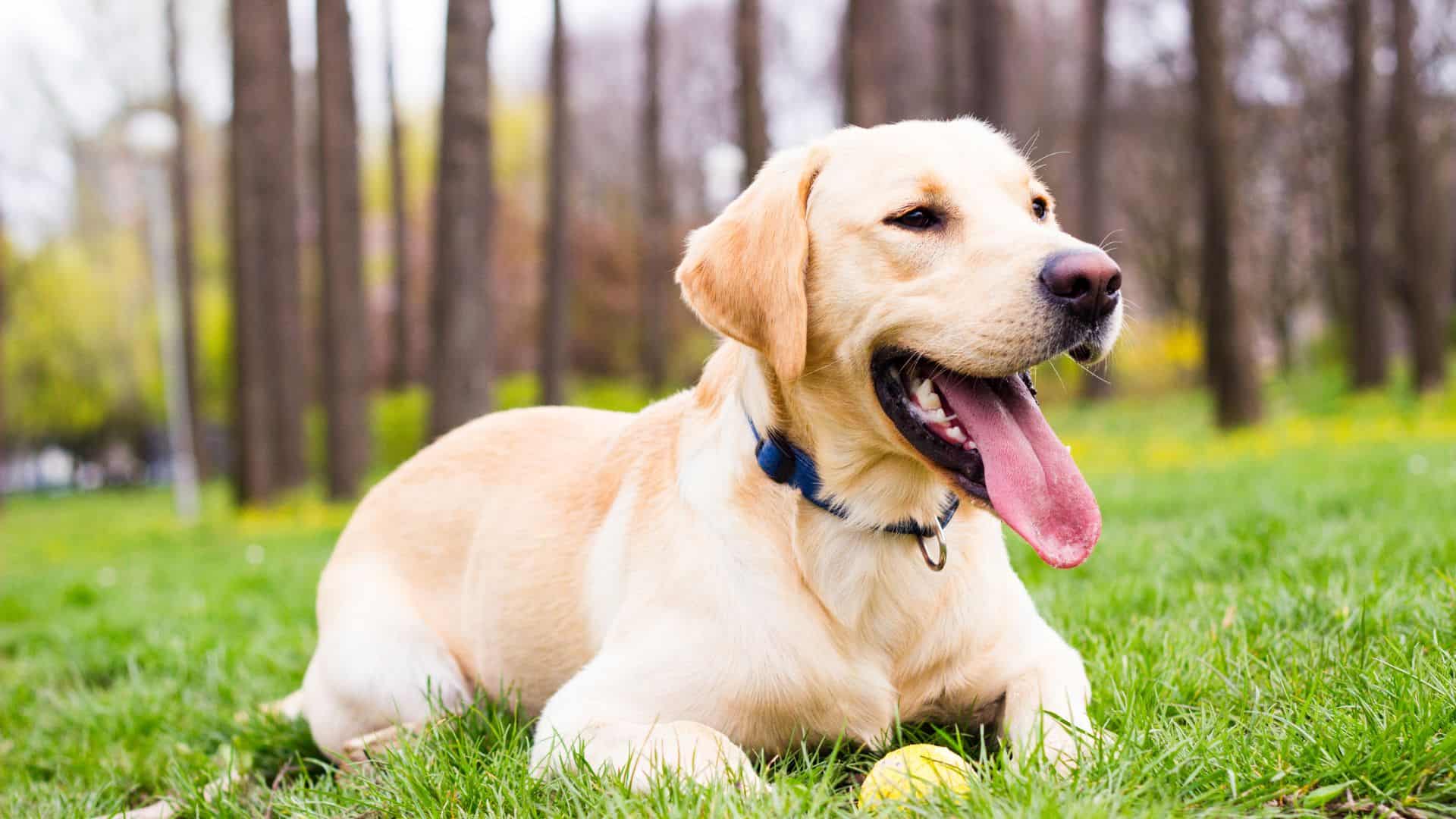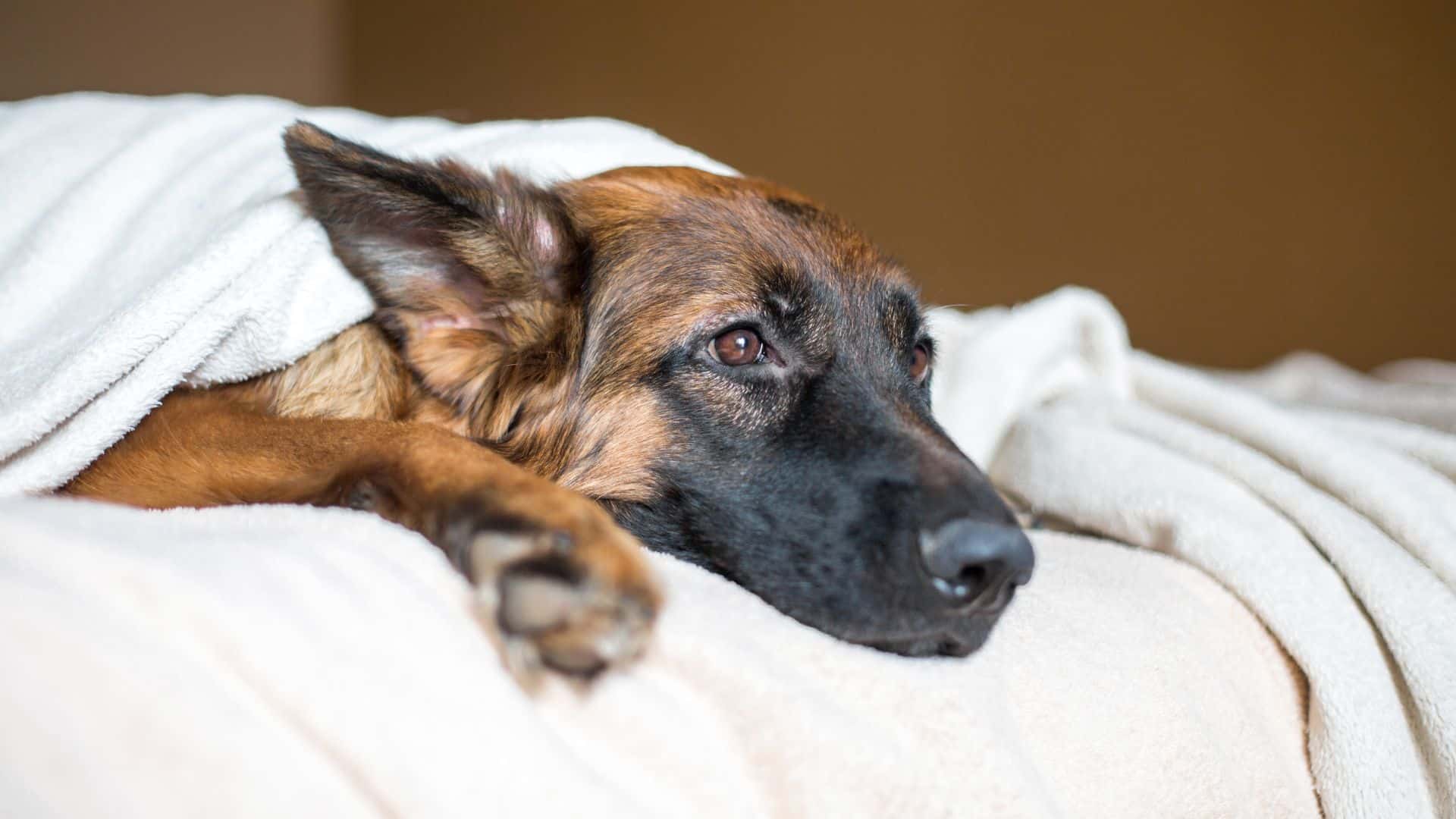As pet parents, we are constantly amused, bemused, or confused by our fur babies and their antics. Today, we’re focusing on one aspect of their behavior that isn’t always a problem, although it can be inconvenient at times.
Perhaps you’ve been wondering, why does my dog sleep so close to me? If so, we have some answers that might help you to understand. So, join us as we explore the most common reasons for this behavior.
Why Does My Dog Have To Sleep So Close To Me?
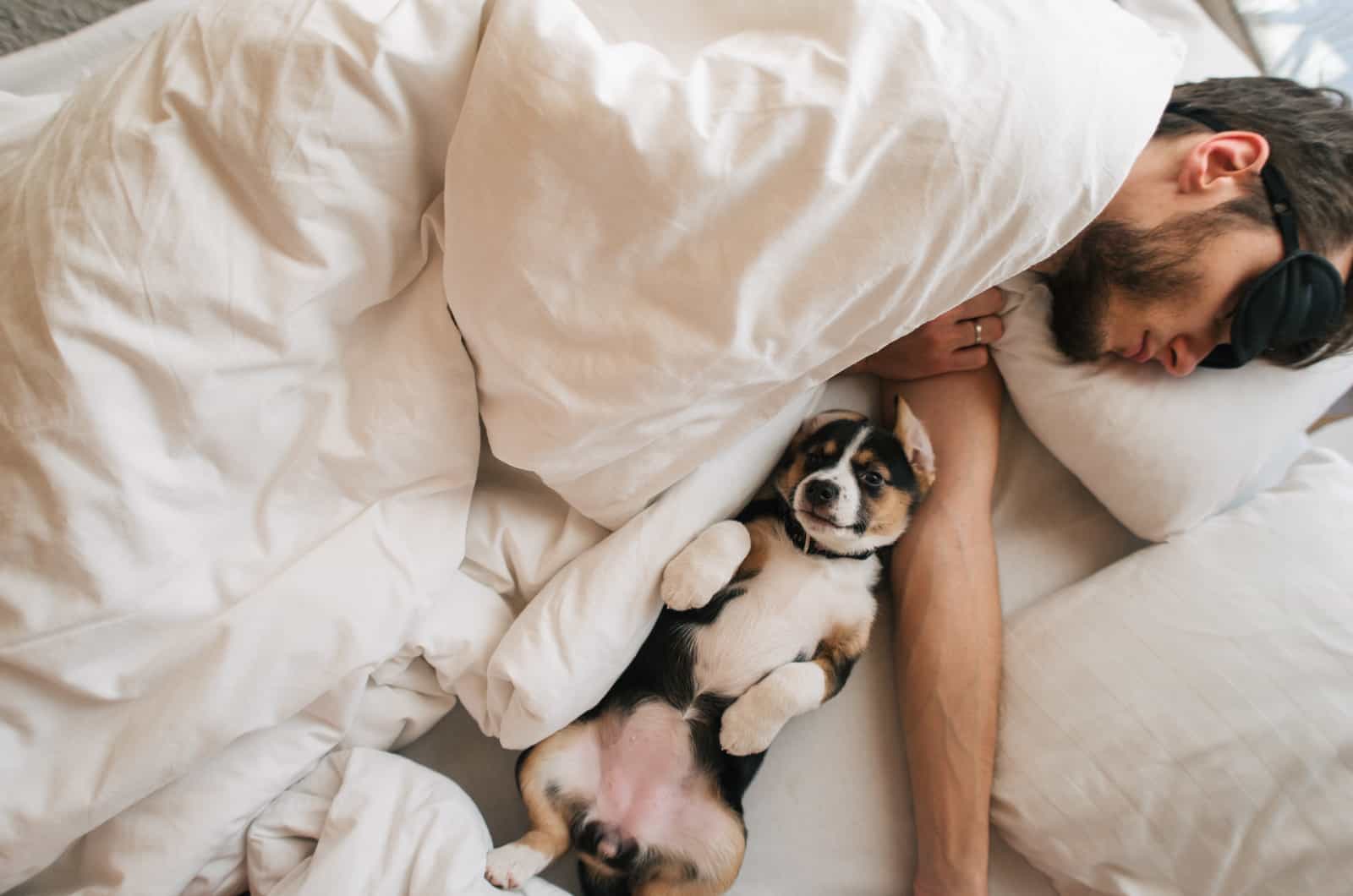
First and foremost, dogs are pack animals. If you watch wild dogs, you’ll often see them lying close together. Have you ever seen a litter of puppies? They will sleep next to and on top of each other, partly for warmth but also for security. This instinct stays with them throughout their lives, and you and other family members take the place of their littermates.
It’s easy to forget that all domesticated dogs are descended from wolves. Even though very few dog breeds resemble wolves in any way these days, they still share 99.9% of their DNA with their wolf ancestors. We’ve changed their appearance, size, color, and many of their characteristics, but some of the instincts remain.
Wild dogs, including wolves, lie together to take advantage of the body heat from the pack. Your pooch likes to cuddle up to you at night because you are warm.
No matter how much we treat them like humans, dogs are animals, and they love to be part of the pack. This is one of the reasons your dog lies so close to you.
Why does my dog sleep so close to me? Because you’re a part of the pack! They feel safe and warm when they are stretched out alongside you.
Why Does My Dog Sleep Next To Me In Bed?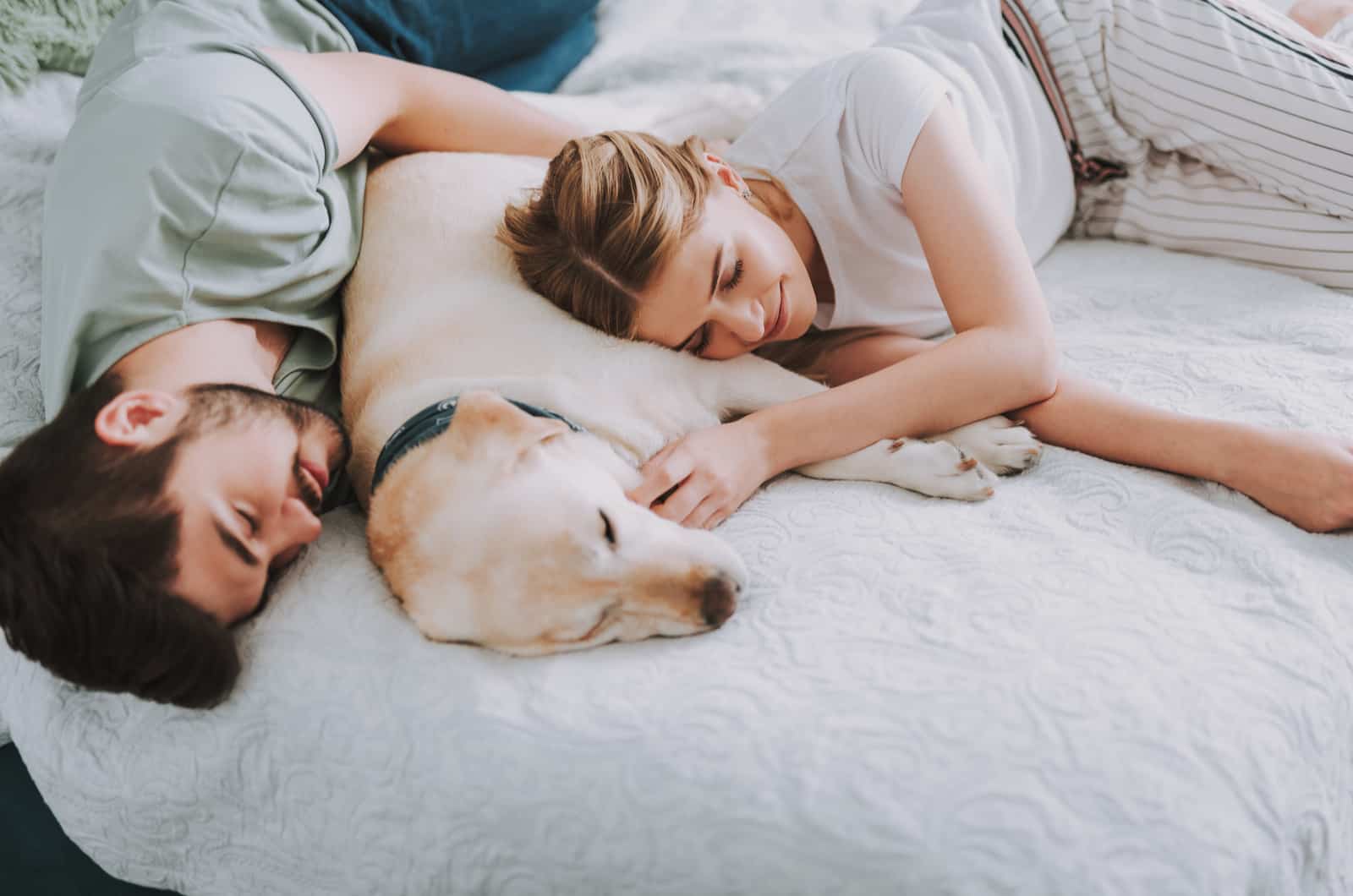
This is another way of asking, why does my dog sleep so close to me?
It’s a sign of affection. Over the millennia, dogs and humans have formed an extremely strong bond. Selective breeding has heightened this, and most domesticated dogs are born with an ingrained need for human companionship.
Some breeds feel this need more keenly than others, and keeping them apart from you is the worst punishment you can inflict on them!
When you welcome a dog into your home, it (usually) rewards you with unconditional love. You take the place of its mother, and it relies on you for everything: food, grooming, walks, playtime, baths, and lots of cuddles.
It’s no wonder it wants to shower you with affection at every opportunity. And one way it does this is by climbing onto your bed at night to be with you.
Do Dogs Sleep With Their Favorite Person?
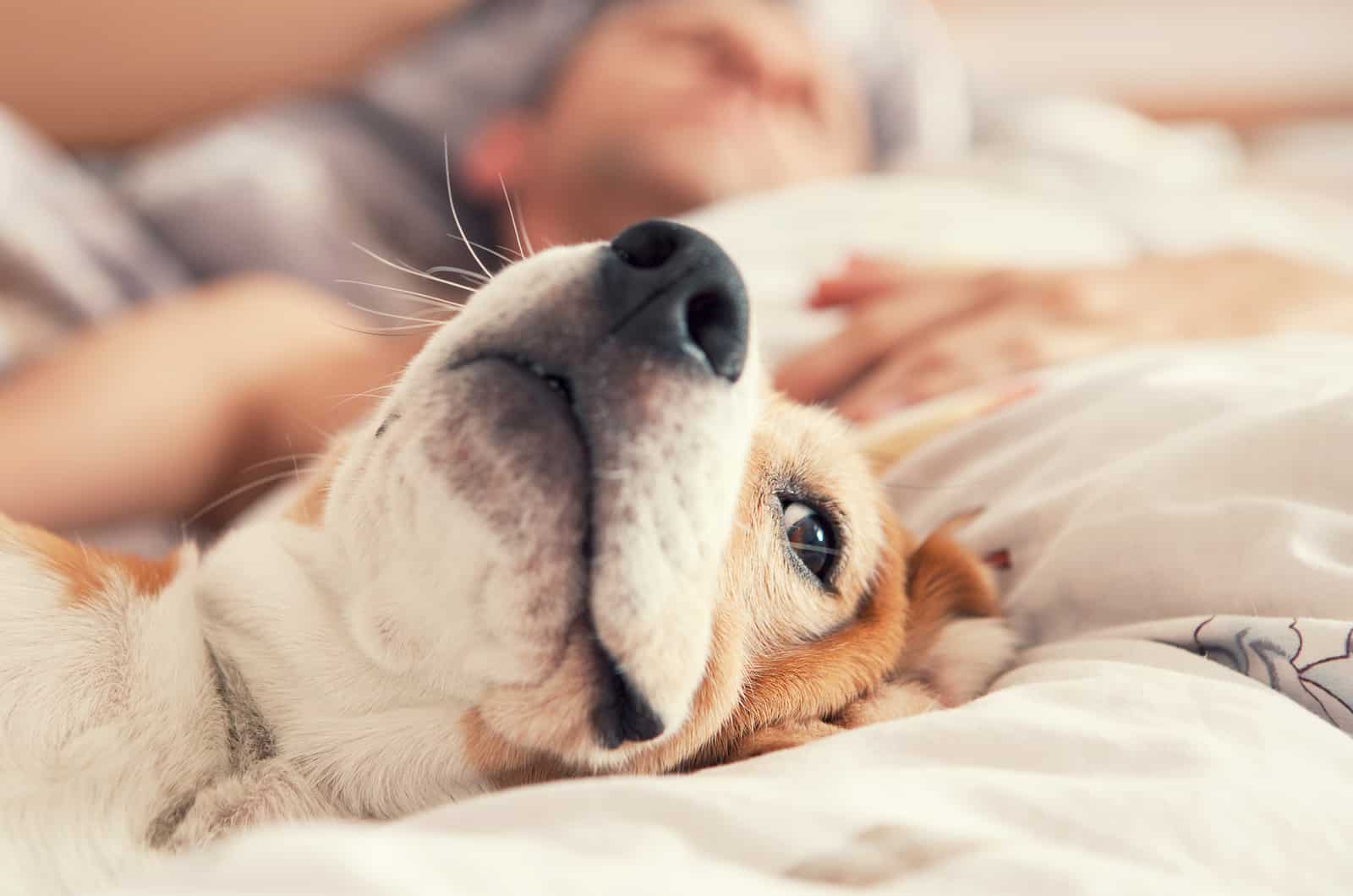
It’s very likely.
If your dog regards you as the pack leader, you’ll probably be their favorite person, but this is by no means always the case. Most dogs happily interact with all family members, but many will single out one person as their favorite, and this is usually a very strong attachment. This can be for a variety of reasons, possibly because that person matches the dog’s energy and personality, and maybe even because they pay them the most attention. It could even be simply that they give them more treats than anyone else! Yes, dogs can be fickle and driven by their stomach.
It could also be that they want to protect you. Many dog breeds feel extremely protective over their families and will sleep nearby so that they are on hand to leap into action if necessary.
This helps answer the question, why does my dog sleep so close to me? It’s because you are the person they love the most in the world!
Why Does My Dog Sleep So Close To Me All Of A Sudden?
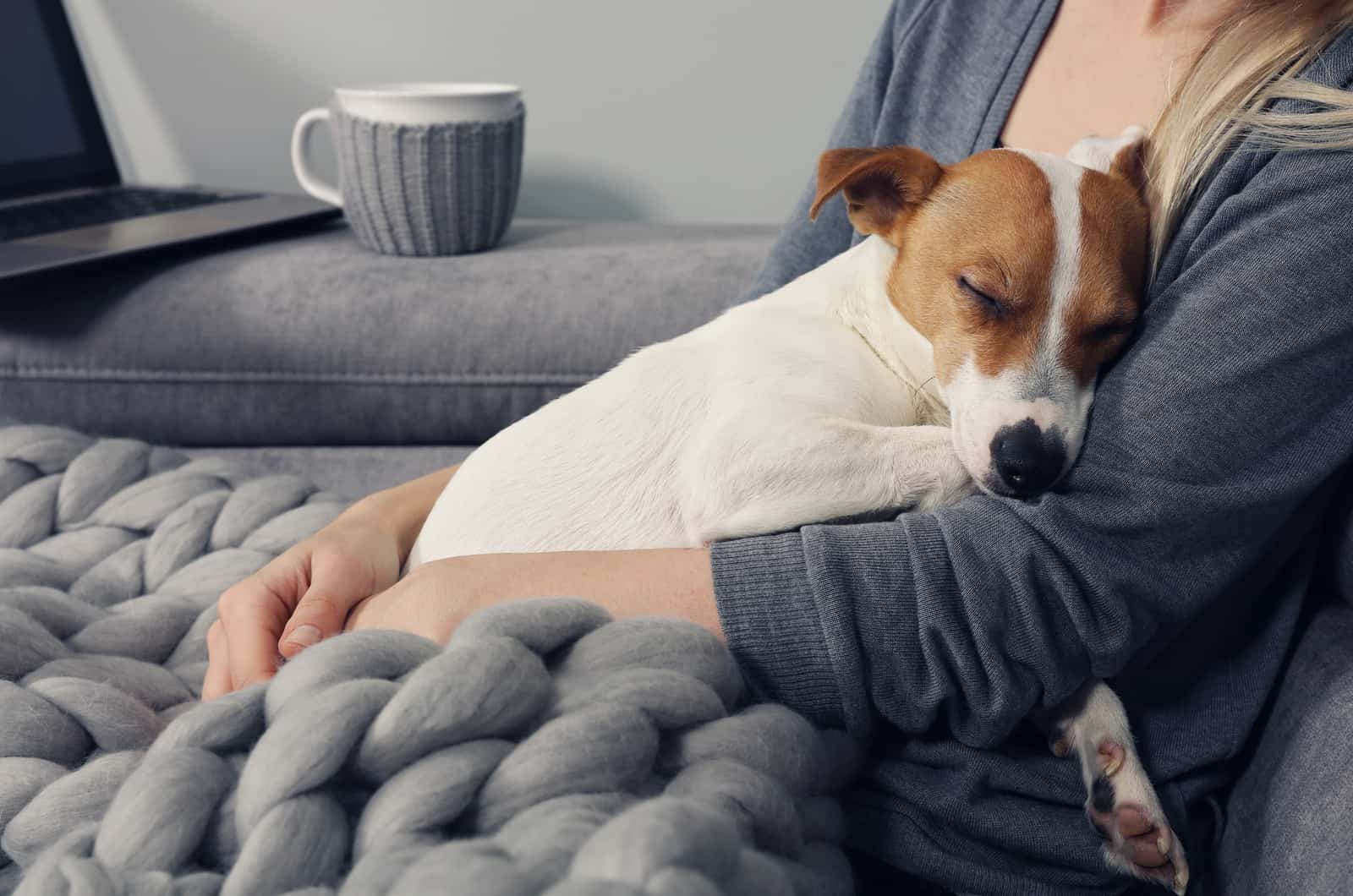
Most dog owners have seen a sudden change in their furry friend’s behavior at certain times in their life. This can be worrying, as it’s sometimes difficult to discover the cause. When your dog has been happily sleeping in its own bed for ages but suddenly climbs into your bed and squeezes up close, it might be a sign that your dog is suffering from separation anxiety.
We’ve already established that your doggie pal wants to spend as much time with you as possible. But this can become a problem when the dog has to spend time alone. Various things trigger separation anxiety in dogs, including major life changes such as family members leaving the home, new arrivals or deaths in the home, changes in routine, sickness, pain, or dementia in old age.
Some breeds are better than others at coping with change. They are extremely adaptable and will take things in their stride. However, their adoration of you as their pack leader is another matter. If something upsets them, they will come to you for security and support. And if they fear that you will be leaving them alone for a long while, they will try to keep as close to you as possible for as long as possible! They soon learn that when you sleep at night, you’ll be there for a good few hours.
This is a great opportunity to snuggle up by your side. Or on your face.
If you suspect that your dog has separation anxiety, watch out for other indicators. You might notice that they become destructive, chewing up stuff in the home or digging up the garden. They may seem to forget their toilet training and go in the house, especially while you’re out.
They might howl or bark excessively, which your neighbors will be sure to tell you about.
Less frequent signs are trembling, excessive drooling, and pacing in a repeated pattern. Some dogs have even been known to vomit because of anxiety and self-mutilate by chewing at their skin.
Don’t despair, as there are ways around this. You can gradually train your dog to accept your absence. Try to limit the fuss when you leave the house and when you arrive home again. Desensitize your dog to certain actions by mixing them up. For example, you could put on your coat or grab your keys, but then sit down again and stay home.
Your dog usually associates these moves with you leaving, so when they realize that you’re still there, they won’t become anxious.
When you arrive home, try to leave it a few minutes before making a fuss over greeting your dog. It will probably break your heart to ignore them for five minutes, as they’ll wonder what’s going on. Be sure to reward them with a treat and lots of cuddles when you eventually go to say hello.
In severe cases of separation anxiety, you might need to get medication from the vet to calm your dog down.
Why does my dog sleep so close to me all of a sudden? Because it doesn’t want you to leave home ever again!
Why Do Dogs Curl Up When They Sleep?
This is to protect their vital organs!
Once again, we need to look at wolves and other animals that sleep in the wild to find an explanation for this behavior. A dog’s belly is the most vulnerable part of its body. When a dog lies on its back and exposes its belly to you, it is thought to be a sign of submission: they are showing that you are the boss and that they trust you.
So, it makes sense to keep this area covered while they sleep, just in case of attack by predators or a rival in the pack.
Even though domesticated dogs do not need to do so, they often curl up instinctively when they sleep. You might notice that your dog curls up in their bed, which isn’t a surprise as most dog beds are oval.
But have you noticed how they lie when snuggling up to you in bed? They might curl up, but there’s a good chance that they’ll stretch right out, sometimes adopting the superman pose.
Whether they do this in their own bed, your bed, or on a rug by the fire, it’s a good sign that they feel happy and safe.
Dogs that have been admonished for bad behavior will often curl up in a corner or in their bed, not necessarily to sleep but to have a sulk.
Dog sleeping positions are clues to how they are feeling, so it’s always worth observing them for any signs that something is wrong. Besides that, it’s cute! Let’s take a moment to look at dogs sleeping habits and see what they can tell us about dog behavior and psychology.
What Does Your Dog’s Sleeping Position Tell You?
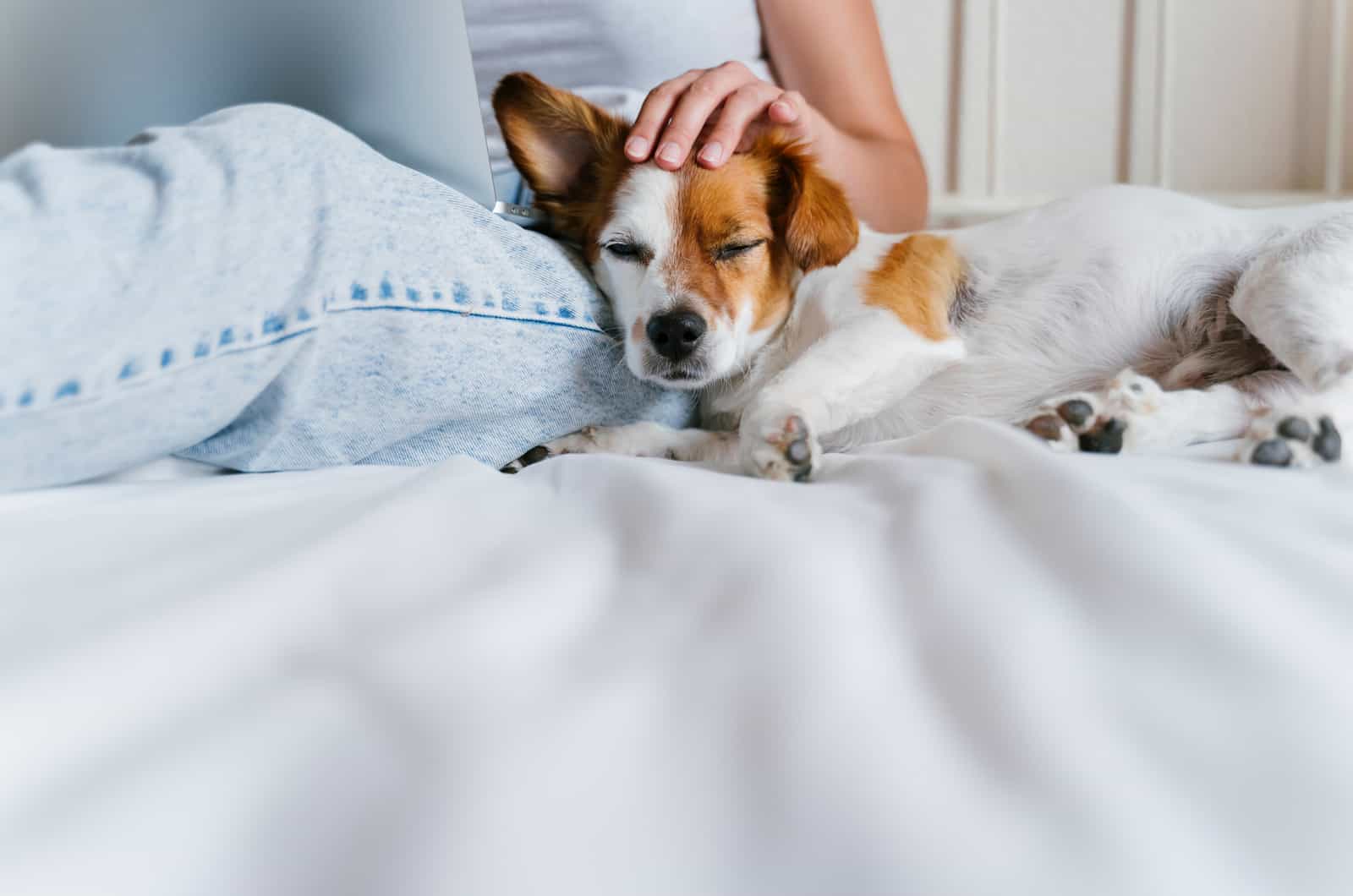
It’s a good idea for pet owners to observe their dogs as they snooze. It can tell us all kinds of things about our pooches and even help diagnose certain conditions.
We’ll go through some of these now and examine what each one means.
Side sleeping – This is the opposite of curling up. Dogs that sleep this way are generally relaxed, warm, and comfortable. They feel safe and secure, and all is well in their world. This is the favorite sleeping position of loyal, confident dogs.
Even so, they might not always give this impression. This sleeping position encourages deep sleep, and this is when you’ll be most likely to see REM (rapid eye movement) as your dog dreams. You might notice that their legs twitch, and they look as if they are trying to run. You might even hear odd woofs and whines, and it sometimes seems that they’re in distress.
It’s more likely that they’re enjoying a good chase or a run in the park, getting seriously excited. Still, few dog owners can resist going over to wake them gently, to be rewarded with a wet nose in the ear.
Cuddling – if you have more than one dog (or maybe a cat), you might notice that they sometimes sleep very close to or even on top of each other. Failing that, they’ll sleep on you, which is relevant to our question, why does my dog sleep so close to me? This is a sure sign that you have a pooch with a big heart. There’s nothing this dog likes more than to be near you or their nap buddy.
One variation on this is the dog that likes to sleep back to back with you. They’re close but facing away from you. It’s still showing affection, but there’s an element of independence and trust. Neither of these positions is much of a problem with smaller dogs, but it might get a bit crowded if you have anything bigger than a spaniel!
The sphinx – this is often seen in devoted, loyal, and protective breeds, such as Dobermans and German Shepherds. They are resting rather than sleeping and will be awake and on their feet in seconds, ready to play, protect, or obey your command. The name is self-explanatory, as the dog will be lying in its tummy with outstretched front legs and its head on its paws.
Curled up – we already mentioned this one, too, but to recap, this is used to protect the vital organs, keep the dog warm, and is also sometimes a sign of insecurity. Many stray dogs will adopt this pose or those that have recently gone to a new home. It’s a natural defensive instinct.
Burrowing – does your dog try to hide under cushions or blankets? This is often a sign of insecurity. Needy or nervous dogs will do this, which can become a nuisance if they’re sharing your bed! Still, you can always give them their own blanket to make them feel more secure.
Stretched out – another one we already talked about, known as the superman! These are very relaxed dogs that are happy with their lot. Similar to side sleeping, but this time they’re on their belly with legs stretched out in front and behind them.
This is usually the mark of a playful, energetic dog. They’ll keep going until they drop, adopting a position that means they’ll be ready to go again once they’ve recharged their batteries!
Exposed belly – if you thought side sleeping or the superman pose was relaxed, this one beats them all. This is for seriously chill dogs that will snooze just about anywhere. They are happy, comfortable with their environment, and they don’t have a care in the world.
Dogs that sleep this way show that they love and trust you 100%.
However, there is another reason why dogs sleep this way, and that’s when they’re hot. Heat escapes quickly through the exposed skin on their belly, so they may turn over to cool down. Even so, a dog will still only lay this way if they trust the people around them.
Don’t be dismayed if adult dogs start to do this less as they get older. It’s not the most comfortable sleeping position, and if the dog suffers from arthritis, they will avoid laying this way. It doesn’t mean that they no longer trust you!
So, What’s The Answer?
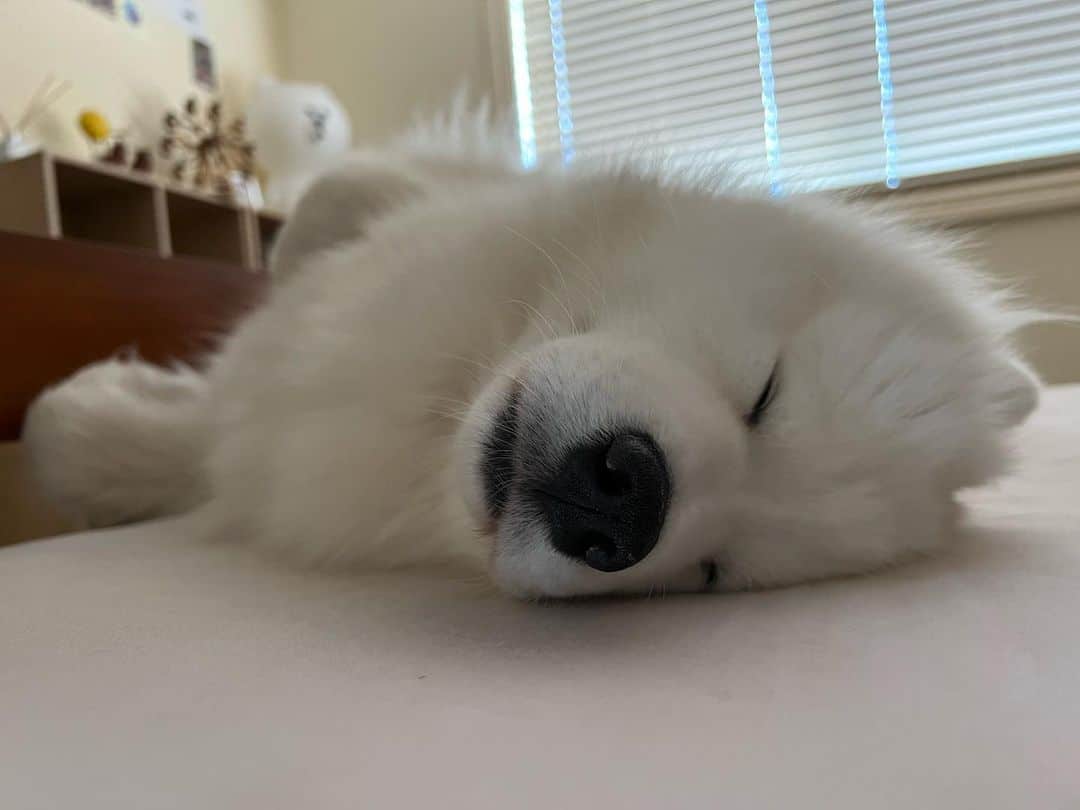
Photo from: @snowiethesammie
Why does my dog sleep so close to me? Well, it’s a natural instinct to sleep with the pack, and like it or not, you and your family are the pack. It’s also a way of showing affection, as your dog loves you unconditionally.
Your dog could also be trying to protect you or telling you in its own special way that it really hates when you leave them alone in the house. Separation anxiety is a big problem and needs to be dealt with.
Mostly, your dog wants to sleep close to you because they just want to be near you. You are their world.
If it isn’t causing any problems, then let them! There is no evidence to suggest that allowing your dog to sleep on your bed with you is harmful. In fact, the evidence proves exactly the opposite! As long as you and your dogs are healthy and happy, then all is well.
Having your dogs on the bed with you will reduce stress and anxiety for you both and will strengthen your bond.
The only fact we haven’t mentioned here yet is safety. It goes without saying that small dogs can easily be injured, so take care if you own a Chihuahua!
If you are trying to discourage your dog from sleeping on the bed with you, you might want to invest in the best dog bed you can find and let him sleep by you in the room. It might take a few nights until he’s settled, but it will be worth it. Make it clear that this is his bed and that your bed is yours alone. Positive reinforcement works well here, so be sure to reward him for staying in his bed.
Finally, take note of your dog’s sleeping positions. It may teach you things about your pooch that you didn’t know.
Read Next:
• What Could Crusty Scabs Around Dog’s Mouth Mean? 9 Explanations
• Why Does My Dog Scratch My Bed Sheets: 9 Explanations

